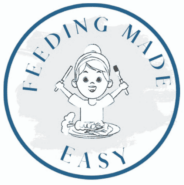With the recent announcement that import formulas are here to stay, you may be wondering if you should choose a goat milk infant formula. Until recently, the US required you to import these formulas yourself. Now these formulas are FDA approved, making them available in stores. Formula advocates were recommending against using imported formulas previously. But now all of a sudden, there’s been an influx to the market and you may be wondering if goat milk is the right choice for your baby.
This post may contain affiliate links and when you click on the links I may earn a small commission at no charge to you. As an Amazon affiliate, I earn a commission from qualifying purchases.
Why the flip flop?
Before the formula crisis, the FDA recommended against using any imported formulas. This had less to do with the formulas themselves and more to do with regulations surrounding them. Now that the FDA approved the formulas, we have resolved many of these issues.
Issue 1: Unreliable Storage and Shipping
Prior to FDA approval, there was no reliable method for importing formulas. There were companies who were doing it, but there was no guarantee that they were properly storing formulas or that shipping would be handled appropriately. Customs would hold many of these formulas, due to the fact that they weren’t approved, leaving you and your baby without food.
Now that the FDA approved these formulas, they will be available from trusted retailers. Also, the formula companies will be responsible for properly shipping them to the US.
Issue 2: Labelling Confusion
Many of the imported formulas had labels written in other languages. There was concern that there would be mix-ups in translations, causing parents to accidentally mix formula incorrectly. There were also issues with some of the nutrient levels, specifically iron, where European formulas have lower guidelines than the US.
The formulas that the US has approved have labels written in English which should help with any confusion. They are also choosing formulas with higher iron levels that meet the guidelines set out by the US. The imported formulas will meet both the guidelines of whichever country they are being imported from and the US guidelines.
Issue 3: Recall Concerns
Especially after the recent recall in the US, it is imperative that parents are aware of any recall of their formula. If parents are getting formulas from other countries, through 3rd party shipping companies, they may be completely unaware of any recalls. This means they could potentially give their baby an unsafe formula.
We’ve resolved this issue as companies will be able to alert US residents. The FDA is monitoring these formulas and will be able to issue a recall alert, if needed. The US used this process with the most recent recall.
Why wasn’t there already a US goat milk infant formula?
The US government makes it extremely difficult to approve new formulas. Part of the process includes a lot of research for any change to the basic formula. Companies have not wanted to put forth the money, time, and effort required to do the research on goat milk formula. It’s difficult to predict the interest level, since goat milk isn’t as popular in the US as it is in other countries.
Are there benefits to goat milk infant formula?
Goat milk formula is generally considered a “gentle” formula. Milk is made up of whey and casein. Within casein there are A1 and A2 beta caseins. A2 beta casein tends to be better tolerated. This is a newer area of research, but for some people who have trouble tolerating milk of any type, switching to an A2 version leads to less discomfort. Goat milk naturally only has A2 beta casein.
For people with a milk allergy or a diagnosis like galactosemia, changing to a goat milk infant formula will not solve the problem. However, for babies with some gastrointestinal discomfort, it is an option.
There are other formulas that are A2 made with cow milk instead of goat milk that are also considered more gentle. These are another great option.
Goat Milk Infant Formula Options
For an updated list of international formula options, check out this post. I’m listing these in the order that they were approved.
- Kendamil Goat First Infant Milk: A standard formula with intact A2 protein. Added prebiotics. No palm oil, soy oil, or corn syrup.
- Bubs Goat Milk Infant Formula: A standard formula with intact A2 protein. Added prebiotics. Won a clean label purity award. You can use code BUBS20 to get 20% off your purchase (not an affiliate, they just wanted to share a discount with you).
- Kabrita Goat Milk Infant Formula: This was just approved in the US. It’s a standard formula with intact A2 protein. Added prebiotics. Contains β‑palmitate.
Is goat milk infant formula right for your baby?
Maybe? Choosing formula is really a personal decision. If your baby is tolerating their current formula, there’s no reason to switch. However, if your baby is having some mild tummy problems on a standard formula, opting for a more gentle formula, like goat milk, can be an option. Goat milk formula is more expensive than standard options. It may not be financially reasonable to make the switch. If you’re looking for more information on formula feeding, definitely check out my Formula Feeding Guide. It goes over all the basics from choosing a bottle, to pace feeding, to determining how much your baby needs.

Krystyn Parks is a Registered Dietitian and Lactation Consultant who specializes in feeding children. She has a Master’s Degree in Nutritional Science from California State University Long Beach. She is an International Board Certified Lactation Consultant and has been registered with the Commission on Dietetic Registration since 2013.
